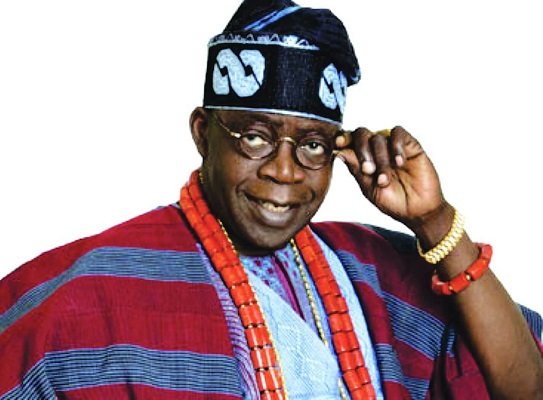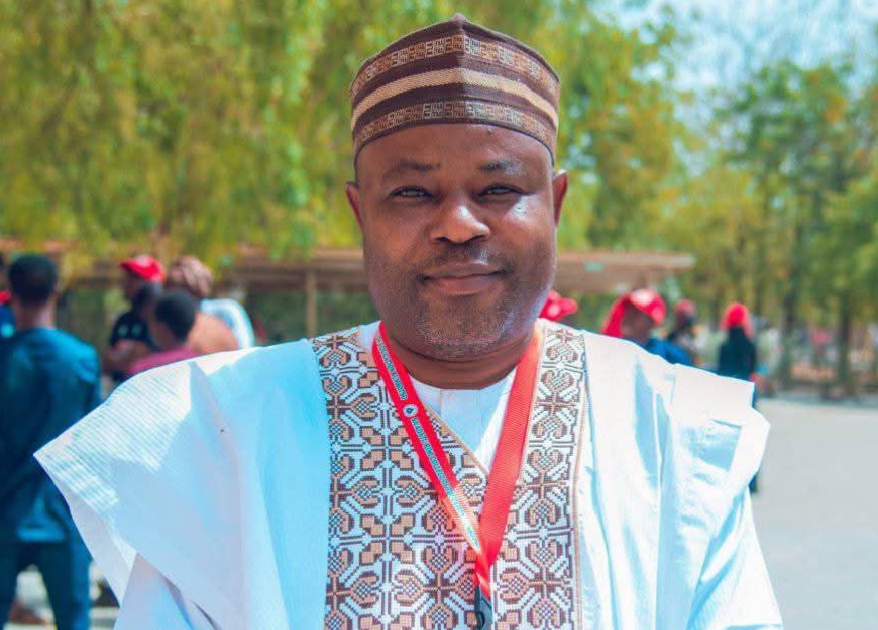Opinion
Tinubu’s Renewed Hope Cities: It’s housing and more

By Abdulaziz Abdulaziz
Penultimate Thursday at Karsana, a suburb of Abuja, President Bola Ahmed Tinubu performed the groundbreaking ceremony of the pilot phase of his ambitious housing project tagged Renewed Hope Cities and Estates Development Programme. Under the first phase of the scheme, 50,000 units of houses are planned to be delivered to Nigerians across the 36 states and the FCT by the end of 2024. Aside the site for the 3,112 which is opened, similar construction sites are active in 12 states around the nation. Subsequently more sites will be activated for the simultaneous mass housing project across the country.
The intention, as the President himself said at the groundbreaking ceremony, is to turn Nigeria into a large construction site with the attendant massive job creation and wealth redistribution. This ambitious project would certainly place the Tinubu administration in a prime spot when the history of mass housing in Nigeria is written.
Formal intervention in the housing sector in Nigeria has a long history dating back to the outbreak of the bubonic plaque in Lagos in 1928.Moving forward, the entire official development plan documents in Nigeria, including the four National Development Plans (1962-1984), had recognized the need for increasing the housing stock in Nigeria, as well as, the need for affordable houses. Despite the work at the policy level, Nigeria has continued to face a significant housing deficit, with millions of its citizens lacking adequate and affordable housing. By 2018 the housing deficit was estimated to be about 17-20 million units. While this deficit poses serious social problem, it also hampers economic development and gets complicated with every passing day (read, every birth!).

It is with this realisation that the then APC candidate, Asiwaju Bola Ahmed Tinubu laid out his vision for the mortgage and housing sector in his elaborate campaign manifesto. The concept is hinged on his longstanding understanding of the economic development and social justice nexus of housing development.
President Tinubu’s Renewed Hope City housing projects offers a tangible step at building dynamic, integrated, and self-sustaining communities, equipped with amenities to enhance the quality of living for residents, especially the targeted low-income earners.
Speaking on the determination of his administration to ensure that Nigeria’s housing deficit is bridged, the President said he is determined to face the housing challenge bedeviling the nation with the boldness and urgency that it requires.
“We aim to promote Public Private Partnership (PPP) collaborations that attract domestic, foreign, and diaspora investments. We also aim to design and implement incentive schemes, boost our capital market while enhancing the governance and risk management frameworks to ensure their stability, transparency and integrity.
“We are resolved to facing the housing challenge with the clarity of purpose and determination that is required to break all the barriers that stand in our way of success. That is why I took the historic decision of separating the Federal Ministry of Housing and Urban Development from Works so it can be fully aligned towards tackling the nation’s massive housing problem. That is also why I have appointed experienced professionals with proven track records of delivering in the housing sector to lead the Ministry,” President Tinubu had said.
These low-cost urban housing projects offer a promising solution to address both the housing shortage and stimulate economic growth. While providing affordable housing options, these projects are creating jobs, enhancing living standards, and hold the potential to catalyze economic activities nationwide.
Development economists say low-cost urban housing projects have the potential to stimulate economic growth through multiple channels. Firstly, by increasing access to affordable housing, these projects enhance household welfare and disposable income. When families spend less on housing, they have more resources to allocate towards education, healthcare, and other essential needs, thereby contributing to poverty reduction and human capital development. Moreover, improved housing conditions lead to better health outcomes, reducing healthcare costs and boosting productivity.
One of the significant benefits of low-cost urban housing projects is their potential to generate employment opportunities. The construction sector is a major driver of employment and economic growth in many countries. By investing in housing projects, Nigeria can create jobs across various stages of the construction value chain, including design, engineering, manufacturing, and site management. Moreover, these projects require skilled and unskilled labor, offering employment opportunities to a diverse workforce. The multiplier effect of job creation in the construction sector extends to other industries, such
as manufacturing, transportation, and retail, further stimulating economic activity. The project designers estimated that every single house will provide 25 direct and indirect jobs. So, the 20,000 housing units planned for the Federal Capital Territory alone will create 500,000 jobs.
These Renewed Hope Cities initiative present a viable strategy to address Nigeria’s housing deficit. These projects focus on providing affordable housing solutions that cater to the needs of low-income earners. By leveraging innovative construction techniques, cost-effective materials, and sustainable designs, these projects aim to deliver quality housing at affordable prices. Moreover, they will foster inclusive development, ensuring that those in the lower wrung of the social cadre, especially workers across Nigeria have access to decent housing options.
The initiative is also attracting private investment and will spur real estate development. As the demand for housing grows, developers and investors are incentivized to participate in the market, leading to increased construction activity and property transactions. This influx of investment not only creates jobs but also stimulates demand for ancillary goods and services, such as furniture, appliances, and utilities. Additionally, improved infrastructure associated with housing projects, such as roads, water supply, and sanitation facilities, enhances the overall urban environment and attracts further investment.
Closing the housing deficit in Nigeria and stimulating economic growth through the Renewed Hope City housing project is a major tick in President Tinubu’s wish list and campaign promises. But like all big ticket projects, filling the gaping hole in our housing need is a multifaceted endeavor that requires concerted efforts from all stakeholders, especially mortgage institutions and developers
President Tinubu has taken a big leap in this regard and with innovation, collaboration, sustained commitment, right policies and investments, Nigeria will unlock the full potential of low-cost urban housing projects to build a more prosperous and inclusive society.
Abdulaziz, Senior Special Assistant to President Tinubu on Print Media, writes from Abuja.

Opinion
Support for President Tinubu’s Policies and Call for the Appointment of Hisham Habib as Political Adviser

By Auwal Dankano
We, a coalition of concerned citizens and political stakeholders, express our unwavering support for the bold and decisive policies of President Bola Ahmed Tinubu aimed at revitalizing our nation and securing a prosperous future for all Nigerians.
President Tinubu’s commitment to economic reform, infrastructural development, and social welfare initiatives demonstrates a clear vision for progress. We commend his administration’s efforts to address the challenges facing our country, and we believe that with continued dedication and strategic leadership, Nigeria will overcome these obstacles and achieve its full potential.
In light of the recent resignation of Hakeem Baba-Ahmed as Political Adviser, we urge President Tinubu to consider the appointment of Hisham Habib as his successor. Hisham Habib is a seasoned political strategist with a proven track record of effective communication, policy analysis, and stakeholder engagement. His extensive experience and deep understanding of the Nigerian political landscape make him an ideal candidate to serve as a trusted advisor to the President.

Hisham Habib’s qualifications include: A degree in English and attended courses in politics and journalism in both local and overseas. He works with media houses up to the level of managing editor, and he was the first set of publishers of online newspapers in Nigeria.
He also served a the Director media of NNPP presidential and govarnatorial election, as well as appointed as Managing Director of Kano State own Radio station.
Many remember him as the pioneer chairman of NNPP, Kano state chapter , whose political expertise help the party win the number one seat in Kano.
As he decamped to the ruling APC, he build a strong chain , that will make our great party victorious at the fourth coming elections.
We believe that Hisham Habib’s appointment would strengthen the President’s advisory team and enhance the effective implementation of his administration’s agenda. His expertise in political strategy and his commitment to national development align perfectly with President Tinubu’s vision for Nigeria.
We call upon President Tinubu to give serious consideration to Hisham Habib’s candidacy and to appoint him as Political Adviser. We are confident that his contributions will be invaluable in advancing the President’s goals and ensuring the success of his administration.
We also want to call the attention of Mr President to consider Auwal Dankano for a national assignment. Auwal is the chairman of Rwinwin, a movement that worked tirelessly toward the success of president Tunubu in the last elections year.
Dankano is a quantity surveyor, with over two decades of field experience, and always promote APC and President Tunubu masses oriented policies.
Ha was a board member of Kano Micro finance, as well as Representative of Kano State , in Northern Governor’s Forum.
We reaffirm our unwavering support for President Tinubu and his efforts to build a stronger, more prosperous Nigeria.
Auwal Dankano
National Chairman
APC Forum of Intellectuals.

Opinion
K-SAFE mourns death of Dr. Auwalu Inusa Mohammed

Dr. Auwalu Halilu
Inna lillahi wa inna ilaihi raji’un.
It is with deep sorrow and a heavy heart that the Kano State Accountability Forum on Education (K-SAFE) receives the sad news of the passing of our dear friend, mentor, and a tireless champion of education and development, Dr. Auwalu Inusa Mohammed, former Chairman of the Education Support Group (ESG).

Dr. Auwalu was not only a pillar in the education sector but a beacon of hope and resilience for all who believed in the power of knowledge and community development. His wisdom, humility, and unwavering commitment to improving educational outcomes have left an indelible mark on our state and beyond.
We extend our heartfelt condolences to his family, colleagues, and the entire development community. His legacy of service, advocacy, and dedication to humanity will continue to inspire us.
May Allah (SWT) forgive his shortcomings, grant him Jannatul Firdaus, and give his loved ones the strength to bear this great loss.
Dr. Auwalu Halilu
Co-Chair (CSOs),
Kano State Accountability Forum on Education (K-SAFE) .

Opinion
K-SAFE felicitates Muslims on Eid-el-Fitr

Dr. Auwalu Halilu
Bismillah Rahmanir Raheem
On this joyous occasion of Eid-ul-Fitr, I extend my heartfelt greetings to the good people of Kano State, particularly education stakeholders, parents, teachers, and students. May this Eid bring peace, prosperity, and countless blessings to us all.

As we celebrate the completion of Ramadan, a month of sacrifice, reflection, and self-discipline, let us carry forward its invaluable lessons into our collective commitment to education. Just as Ramadan teaches us patience, perseverance, and generosity, we must apply these virtues in ensuring that every child, especially the most vulnerable, has access to quality education.
Education is the key to sustainable development, and our duty as a society is to nurture a system that is inclusive, accountable, and responsive to the needs of our children. The spirit of Ramadan encourages us to be more compassionate and proactive in addressing societal challenges. Let this spirit guide our continuous advocacy for improved educational policies, increased access to learning opportunities, and enhanced support for teachers and students.
As we mark this blessed day, I urge all stakeholders, government agencies, civil society organizations, community leaders, and development partners to renew their commitment to strengthening education in Kano State. Together, let us translate the lessons of sacrifice, discipline, and generosity into actionable steps toward building a future where every child has a fair chance to learn and thrive.
Eid Mubarak! May Allah (SWT) bless our efforts and grant us success in our quest for an enlightened and educated society.
Dr. Auwalu Halilu, is a Co-Chair (CSOs), Kano State Accountability Forum on Education (K-SAFE).














